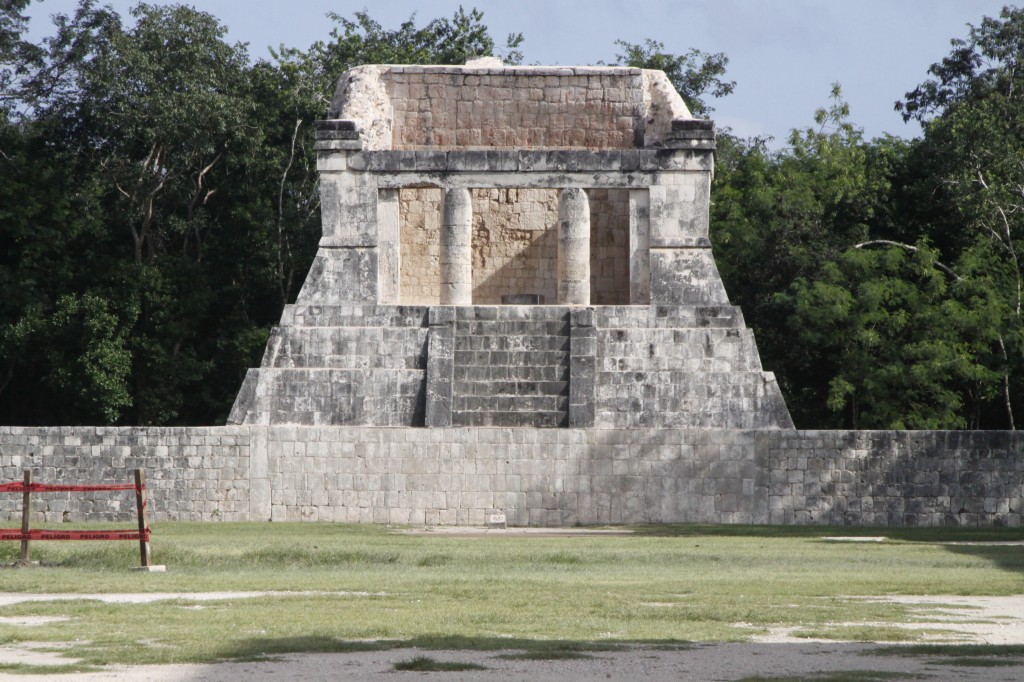
Chichen Itza Ball Courts
There were over ten ball courts in Chichén Itzá signifying the importance of the game and the devotion to the “sport.” They are of all different sizes and now, in different conditions. Many are mere piles of rubble.
There are over 1,300 ball courts in Mesoamerica. They are a large rectangular playfield with two parallel sloping walls on the longest side. In later years, ball courts were completed with end zone wall which forms an “I.” The ball courts were built for many purposes including as an indication of city and individual wealth. Though primarily used as a location for the ball games, archeological evidence also indicates that they were likely used in other spectator sports such as wrestling as well as feasts.
The game was an important part of of the social fabric in the Mayan world. Part judge and jury, part religious center, the ball courts were strategically placed in the ceremonial centers of ancient Mayan cities.

There were many different ball games played but they were generally played with solid rubber balls. Just as the size and shape of the court differed from town to town, city to city, the size of balls varied from about the size of a softball to a much larger soccer ball.
The most popular game was called Pitz and because of the large stone rings at Chichén Itza was likely the game of choice for Chichén residents. The object of the game was to propel the rubber ball through the hoop without the use of hands. The balls would bounce down the slanted sides of the court and bounce to the field of play below.
The players would wear different but numerous protective pads on their hips, arms and legs. A wooden or leather yoke often protected their shoulders and torso. Solid rubber balls are extremely heavy and can weigh up to 9 kilos (20lbs). The players costume was topped off with animal headdresses believed to be associated with the player.
The games were serious affairs and were used to settle political and social disputes. A disagreement between two parties or towns could be settled by the recruitment of teams that would play for the parties. Loosing a game would often mean decapitation. In many archeological sites, a skull rack is used to display the heads of the victims.
Ball courts have been found as far north as Arizona and south to Nicaragua.
